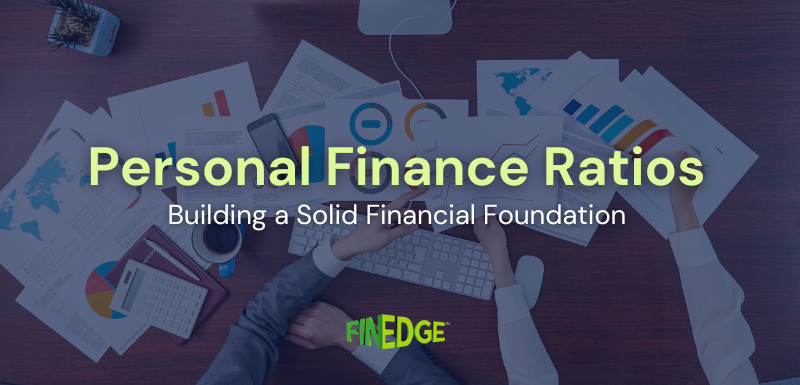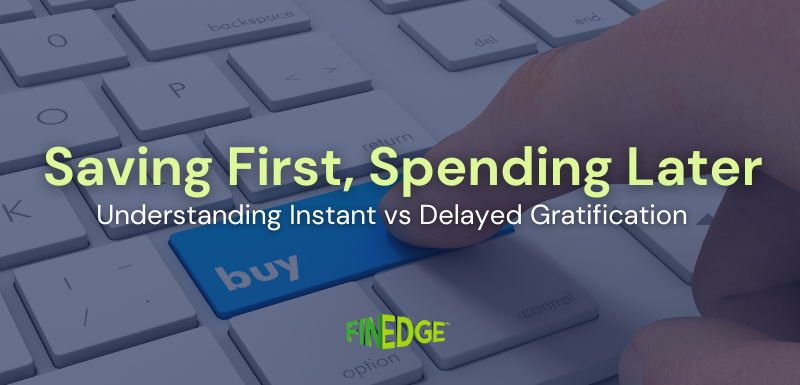Investing Insights
Responsible Credit Card Usage: Three Principles Every Consumer Should Follow
Credit cards are powerful financial tools when used correctly, offering convenience, rewards, and short-term liquidity. But when used without discipline, they can quickly turn into high-interest liabilities. Understanding a few essential principles can help you manage your cards responsibly, maintain a strong credit score, and avoid stress caused by compounding debt.
FinEdge App: Invest With Clarity, Stay Disciplined, Achieve Your Goals
The FinEdge app is designed to make your investing journey more organised and guided. It helps you and your investment manager plan your goals with clarity and review them whenever life changes.
Understanding the Financial Planning Pyramid: Building Your Finances the Right Way
Most people juggle several financial goals at once, an emergency fund, retirement planning, a child’s education, or even short-term lifestyle goals like travel. Without a proper framework, it becomes difficult to decide what to tackle first. The Financial Planning Pyramid offers a simple and effective way to bring structure to your financial life. It ensures that essential protections are in place before you start saving and investing for long-term wealth.
Personal Finance Ratios You Should Understand Before You Start Investing
Successful investing begins long before you pick funds or set return expectations. It starts with understanding your financial foundation, how much you earn, how much you spend, and how much is left to invest consistently. These simple but powerful personal finance ratios offer a clear view of your financial health and help you make informed, goal-aligned decisions.
Types of Gold Investments: A Complete Guide for Indian Investors
Gold continues to be one of India’s most trusted assets, but the way we invest in it has evolved. With multiple formats now available each serving a different purpose it’s important to know where gold truly fits into your financial plan. This guide simplifies your options so you can choose the format that aligns with your goals, behaviour, and long-term strategy.
Can AI Replace Financial Advisors? What Investors Should Really Expect
The rapid growth of AI in financial services has made many investors wonder whether AI can replace financial advisors. AI brings speed, automation, and powerful analytical capabilities, but meaningful financial planning requires far more than data. Investors need guidance that adapts to life changes, supports decision-making during uncertainty, and connects financial choices to long-term goals. That level of interpretation and behavioural understanding remains uniquely human, making the future of wealth management a blend of technology and human expertise.
Cost of Delay in Investment: Why Starting Early Matters
Many investors assume that postponing their SIP temporarily has a minor impact. In reality, the true loss comes from the compounding opportunity that disappears with every missed month. A consistent approach is far more powerful than trying to compensate later by investing larger amounts.
Difference Between Sensex and Nifty: A Simple, Clear Explanation
When people talk about the Indian stock market, two names appear everywhere: Sensex and Nifty. They are the most widely tracked market indices in the country. Yet many investors still look for a clear explanation of the Sensex and Nifty difference, how each is calculated, and what companies form part of these indices.
Instant vs Delayed Gratification: A Behavioural Lens on Long-Term Wealth Creation
Wealth creation is not driven only by market movements or income levels, it is equally shaped by everyday behavioural choices. The balance between instant and delayed gratification often determines whether an investor accumulates meaningful wealth or repeatedly falls short of long-term goals.
Financial Planning Before and After Retirement India: A Complete Guide to Building & Managing Your Retirement Life
Planning for retirement is not just about saving, it’s about understanding how your needs evolve. Financial planning before and after retirement India requires two different skill sets: building your corpus before retirement and managing it wisely afterward so it lasts 25–30 years.
Types of Debt Funds in India
Debt funds in India offer something for everyone, from overnight investors to those with long-term goals. Knowing the types of debt funds can help you align your choices with your financial plan.
Should NRIs Invest in Mutual Funds in India?
India’s economy is entering a powerful growth phase, and NRIs have a unique chance to be part of it. Mutual funds make it simple, transparent, and goal-driven to participate in this long-term opportunity.
Latest Posts
Retirement Planning in India: A Practical Framework for Long-Term Security
Feb 25, 2026
When Is the Right Time to Start Investing for Your Goals?
Feb 23, 2026
How to Adjust Your Investments After a Salary Raise
Feb 20, 2026
Why Mid-Cap Allocation Needs More Discipline Than Large Cap
Feb 18, 2026
Why Return-Focused Investing Fails in Volatile Markets
Feb 16, 2026
The Importance of your Child’s Education Goal
Feb 28, 2024
Why Retirement Planning is Important
Nov 08, 2023
Oct 31, 2023
Investing Behaviour and the investing roller coaster
Oct 12, 2023
Investing Stories
.png)



.png)










.jpg)

.jpg)
_(1)1.jpg)
.jpg)
.jpg)
.jpg)